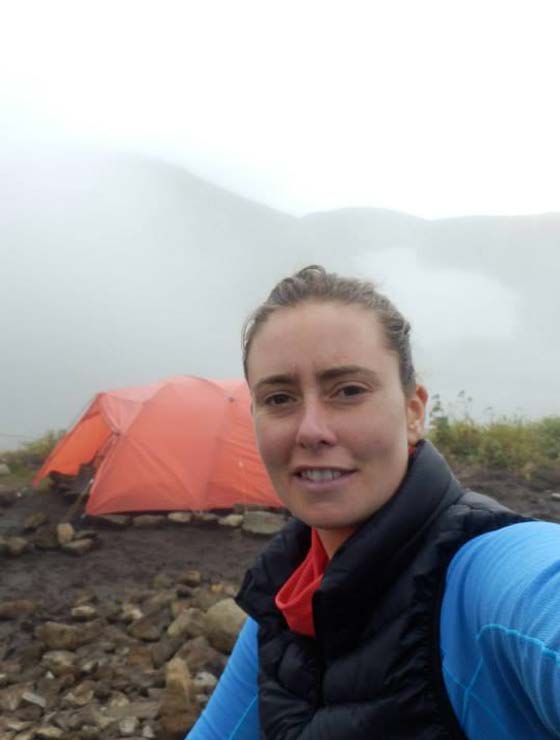A chaotic trajectory: Math, biology and agriculture

Dr. Jordan Sinclair presents keynote address at research retreat
Dr. Jordan Sinclair first intersected with biology at an academic recognition luncheon hosted by the athletic department. She was a math major on the softball team and happened to chat with Carl Freeman, now an emeritus professor in biological sciences, who was invited by another student-athlete.
Carl had the vision to see that this mathematically inclined student had the makings of a first-class ecologist. He offered her a summer position doing fieldwork in the southwestern desert and the trajectory of her life changed. She started taking biology courses while finishing up an M.A. in mathematics and joined the Ph.D. program in biological sciences, working with Dr. Freeman to probe the ecological implications of skewed sex ratios in plants. Jordan emphasized the value of making interpersonal connections in grad school and meetings. She formed connections with a group of graduate students at a conference and they ended up editing a special issue of the American Journal of Botany - while in graduate school!
Along the way, she took advantage of opportunities to work at a field station in Costa Rica and study aspen trees in Colorado and Minnesota with Dr. Dan Kashian. Then, as Jordan approached graduation, she won a postdoctoral fellowship that enabled her to work in Hokkaido, Japan with a group studying shrub reproductive ecology. She considered learning Japanese but decided that was too hard and opted to spend the long, snowy nights picking up the statistical program R instead. This turned out to be a sound investment for a future data analyst! Then she landed a second postdoc at Rice University, this time doing field work on seed dispersal by lemurs in Madagascar.
I had never met an ecologist before. It seems naive to me now, but before I met Dr. Freeman, I really thought my career options were teaching or actuarial science.
After two postdocs and facing a tough job market in academia, Jordan applied for a job as a data analyst at an electrical utility distribution company - and was rather surprised that they hired her immediately! After three years of acclimating to the industry, she accepted a position as the head of data analytics at Deveron, a consulting group based in Chatham Ontario that analyzes agricultural data for farmers.
Their goal is to apply the wealth of data produced by agriculture to develop more efficient and sustainable farming practices. These days she uses research methodology and her coding skills to decipher the enormous troves of data produced by soil samples, agricultural equipment and aerial imaging. Jordan's work may ultimately influence farming practices all over North America. Wayne State is proud to welcome Jordan back to Wayne State and learn about her remarkable career.